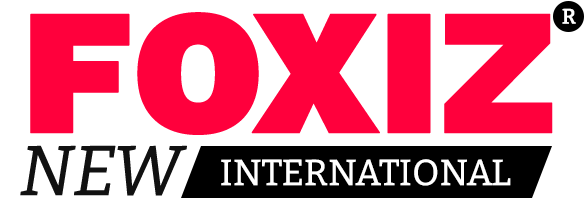Starting on September 20, 2000, Uswitch has been assisting customers in finding cheaper electricity, mobile phone, and broadband plans. They expanded their offerings in 2001 to include mobile phone comparisons and home broadband, expanding their initial focus to energy transactions in 2005.
How much has changed since the year 2000? When they debuted, this is how the Uswitch website appeared.

From its humble beginnings as a startup at the turn of the century to its current position as a dominant player in the price comparison industry, Uswitch has won the confidence of customers nationwide. They have saved customers £2.5 billion over the past 20 years.
Uswitch joined the RVU family of companies in 2018 following its acquisition by property tycoon Zoopla by the investment group Silverlake and Red Ventures.
What is Uswitch?
You can compare rates on many different products and services with the help of Uswitch, an online comparison and switching tool.
Theirservices can assist you in finding more affordable options for utilities, heating, home phone, communications, insurance, and personal finance. Getting the most out of the deals and services that suppliers have to offer is their top priority.
At this time, Uswitch does not have a call centre or engage in door-to-door sales; all of their business is conducted online. Email [email protected] to report any suspicious activity, such as a visit or phone contact from someone claiming to represent Uswitch.
With Uswitch for Business.com, businesses can find and compare costs for a variety of services, including gas, electricity, and insurance, and enjoy all the perks of Uswitch.com’s friendly, thorough, and convenient service.
What is home insurance?
One way to safeguard your property is with home insurance, which is sometimes known as house insurance. Your house will be protected from calamities like fire, flood, subsidence, theft, and more if you pay your premium on time every month.

Do I need home insurance?
Having a home insurance policy can help safeguard your house and all of its belongings. Most people couldn’t afford to restore their homes after a disaster like a fire or flood. The majority of individuals fail to fully account for the monetary worth of their possessions and the expense of replacing them in the event of theft or loss.
Obtaining the finest quotes requires some research. Your best bet for house and possessions insurance might not be the policy with the lowest premium.

What type of home insurance do I need?
Buildings insurance
Protects your house’s framework from perils including fire, water, subsidence, and the expense of reconstruction. The policy will only pay for the structure of your home, not anything inside. Building insurance is necessary solely for property owners, not for tenants or those who rent the property.
Contents insurance
It covers your belongings in your primary residence as well as any attached garages or outbuildings that you opt to cover in your policy. It is not required to have contents insurance, but it is wise to do so because it could be expensive to replace your belongings in the event of a fire or theft.
Combined home insurance
Separate policies for your home’s structure and belongings are available. On the other hand, you can safeguard your home by purchasing both policies simultaneously. You may hear this referred to as building and contents insurance.
How do I choose the best home insurance for me?
A comprehensive house insurance policy that addresses all of your concerns and safeguards your possessions is the ideal option.
Standard-built home
Home insurance prices might vary widely if your property is typical construction and there are no known risk factors, such as proximity to a river or subsidence.
Specialist needs
Your home may require specialised insurance coverage if it has uncommon features, is thatched, has a high danger of flooding, is very large, has many rooms, or contains valuable possessions.

Tips on how to get cheaper home insurance quotes
- Compare prices: Shop around for the best deals. Work out which is the best home insurance for you, not just the lowest monthly premium.
- Increase your excess: You might be required to pay a little sum, called the excess, in the event that you want your home insurance to pay out a claim. Your premium is going to be cheaper if your excess is higher.
- Fit good quality locks to windows and doors: If you take measures to make a break-in less probable, the insurance provider will view you as having a lesser risk.
- Check out these combined deals: Sometimes getting home contents and buildings insurance together can work out cheaper.
- Try to build up a no-claims bonus: If you have a claim-free history, your insurance company is more likely to offer you a cheaper price. It is also likely not worthwhile to make numerous smaller claims if you have a greater surplus.
FAQS:
What is the average cost of house insurance in the UK?
Your location, the type of house you own, and the amount you need to insure all play a role in determining the typical cost of home insurance in the UK.
Home contents insurance typically costs roughly £114 per year, which has decreased by 11% since 2021 (according to ABI estimates for 2022). However, the exact amount you pay will vary depending on the value of your things.
Building insurance premiums often amount to £225. The Association of British Insurers reports that the average price for combined buildings and contents insurance is slightly over £307, reflecting a 2% decrease.
Is it better to buy buildings and contents home insurance together?
Purchasing building and contents insurance from the same provider may save you money, but it’s always a good idea to shop around for the best deal.
What happens to my home insurance when I’m moving house?
Look up the area’s flood danger on the Environment Agency’s website if you’re planning to relocate.
Getting building insurance should also be on your list of priorities when purchasing a home. It is prudent to obtain building insurance prior to the contract exchange as a precaution.
The moment you get the keys to your new house and close the deal on the purchase, you require home contents insurance.
What else do I need to know about home insurance?
Although home insurance is a straightforward product, there are certain things you should be aware of, such as exclusions, which are situations in which your policy will not pay out. Some insurance policies may not cover flood damage, for instance, if your home is located near a river.
Location, the cost to rebuild, the value of your home and its contents, and the number of claims you have in the past are all factors that can impact your home insurance premiums. Whether you’re okay with paying a hefty excess—your portion of the cost before insurance pays out—will also have an impact on your rate.










